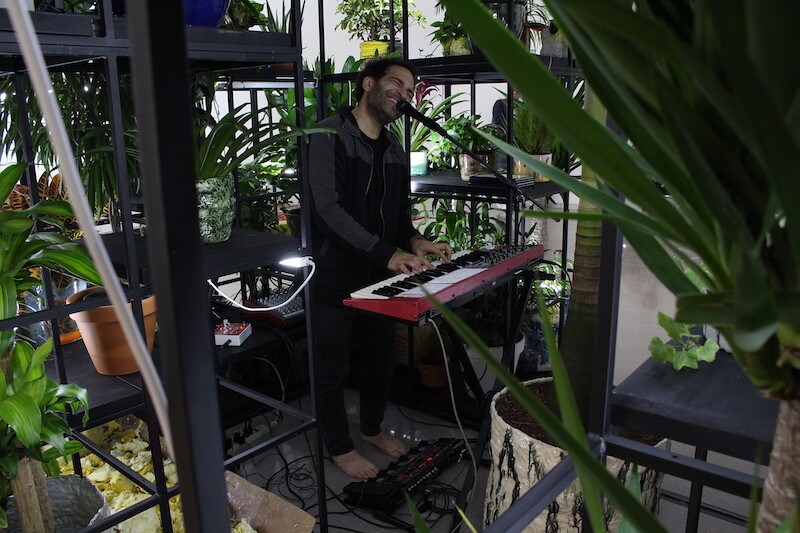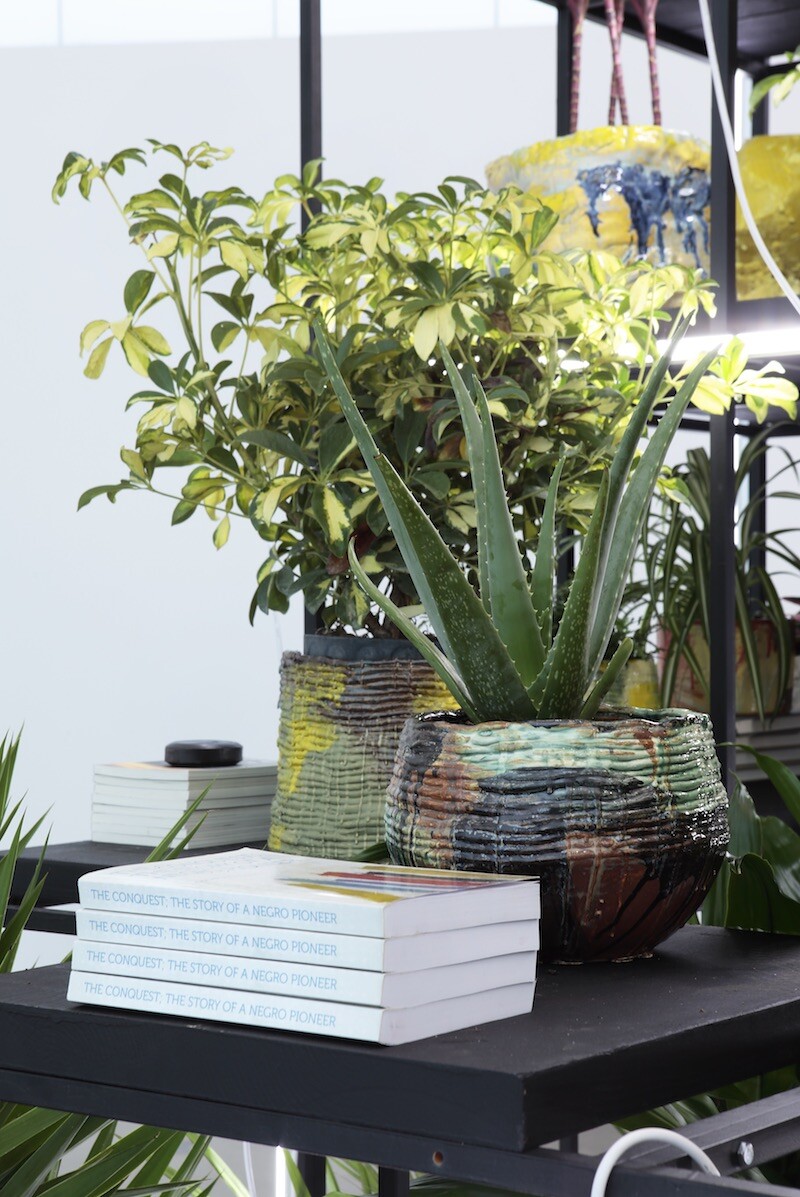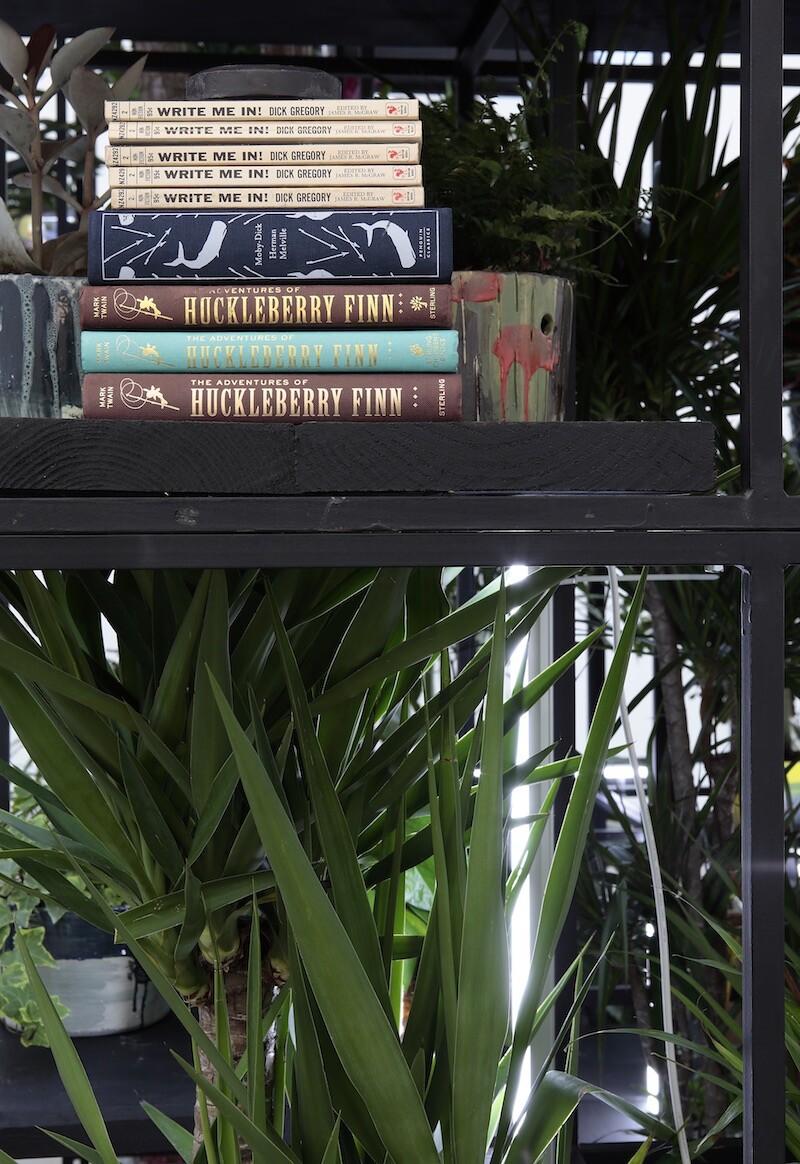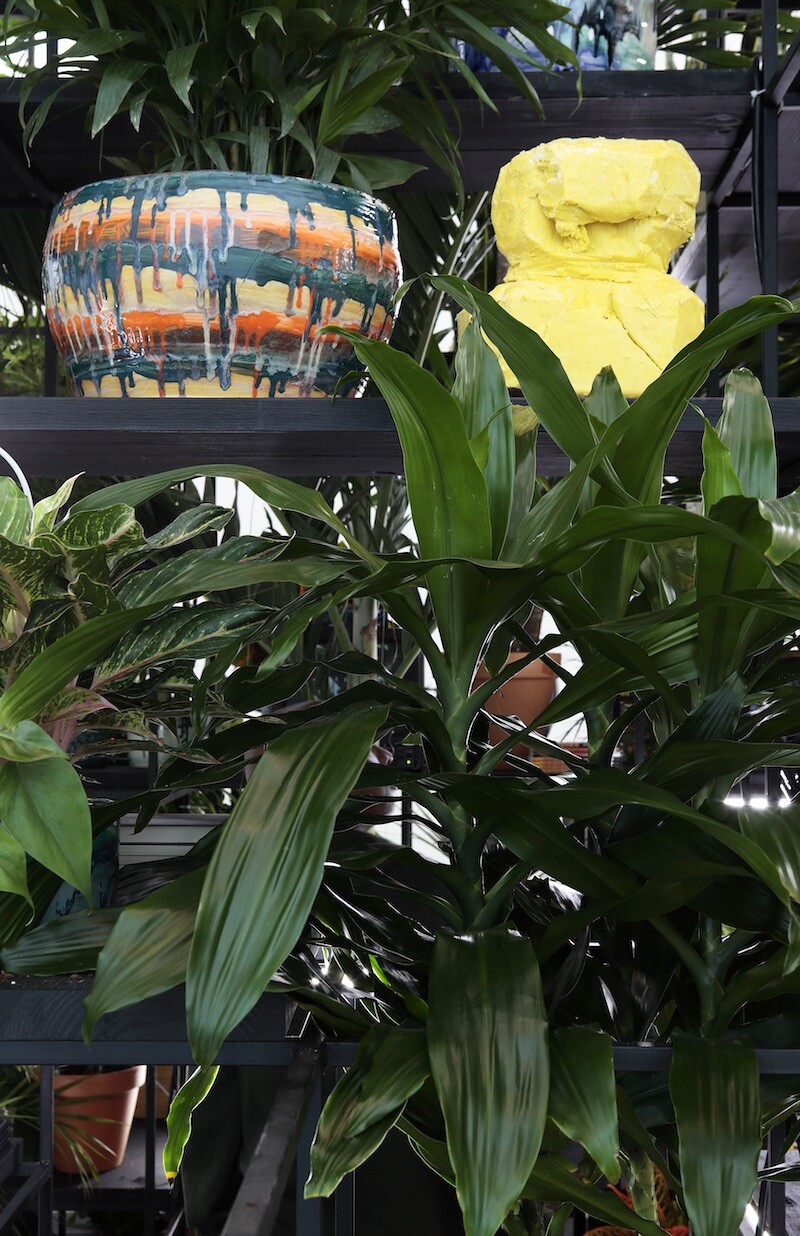October 17, 2018–July 14, 2019
Driving along Monument Avenue in Richmond, Virginia, one traverses the former Confederate capital from the wealthy West End to the central Fan district near the newly opened Virginia Commonwealth University’s Institute for Contemporary Art (ICA). Originally conceived in 1890 as tree-lined home to the memorial for Robert E. Lee, the commander of the Confederate States Army during the American Civil War and slave owner, the boulevard has since seen additions of other massive, plinth-mounted statues, including Confederate general Stonewall Jackson, Confederate president Jefferson Davis, and, since 1996, also incongruously and controversially African American tennis star Arthur Ashe. Half a mile from the Lee memorial, on the top floor of the ICA, Rashid Johnson’s exhibition “Monument” confronts the state of monuments, questioning collective consciousness and whose stories are granted visibility. The show couldn’t be more timely, as the American South is debating the legacy and future of its Confederate monuments, many of which were erected long after the end of the Civil War and well into the twentieth century.
Johnson’s exhibition consists of the new work Monument (2018), a temple-like structure made from a steel shelving system coalescing references to Minimalism, like Sol LeWitt’s sculptures, and mass-produced IKEA furniture. The installation is clad with white neon tubes, exotic plants in hand-crafted ceramic pots, and busts sculpted from shea butter. Stacked on the shelves are multiple books, including comedian and civil rights activist Dick Gregory’s Write Me In! (1968), recounting his presidential campaign which gained him a mention on Richard Nixon’s list of political opponents; Herman Melville’s Moby-Dick (1851), a reminder of America’s racial unconscious; and James Baldwin’s The Fire Next Time (1963), tackling race relations and religion, next to The Man Who Talks With Flowers (1939), Glenn Clark’s biography of George Washington Carver, an agriculturalist born into slavery who revolutionized farming in the American South through his research into crop rotation as an alternative to cotton monoculture. Also on the shelves are old color televisions screening videos such as Black Yoga (2010), depicting a man doing yoga outdoors on a woven rug, and Samuel in Space (2013), in which a dancer performs movements from ballet and martial arts in a vast field at sunrise. Both highlight the black male body as a site of projections for preconceptions of identity.
Beyond its nod to Minimalism’s emphasis on “objective” spatial presence, Monument also alludes to forms of labor: capitalism’s alienated serial manufacture of mass furniture, and enslaved work on plantations, upon which the wealth of the country is founded, yet whose monuments honor its exploiters, not its victims. Challenging the regularity of mass production and the alleged neutrality of Minimalism, as well as affiliated tropes of purity and naturalized order enshrined in the political, economic, and legal systems, the plants bespeak their migratory paths, pointing to the travel of people, both voluntary and forced, as well as the miscegenation of cultures. While plants can be out of place, or forced into a taxonomic order, they also require commitment and care. So do our multiple histories, the exhibition seems to imply.
An hour’s drive from Richmond, a much-publicized white supremacist rally opposing the removal of a statue of Robert E. Lee took place in Charlottesville in 2017. It is just another example of the difficult, violent battles over the abolition of Confederate monuments. Considering the imbalance between those who are heard and those who remain muted, writing alternative histories is crucial. We cannot content ourselves with merely integrating these narratives, but must ask how histories are construed and what blind spots they produce. The books on display in the installation speak of African American experiences, but are exclusively written by male authors. Johnson’s seizing of Minimalism’s monolithic purity, while highlighting biased history’s stronghold over the collective conscious, produces a critical disposition: the exhibition suggests that beyond toppling monuments, the rules of visibility themselves must change. As Audre Lorde reminds us, the master’s tools will never dismantle the master’s house.








